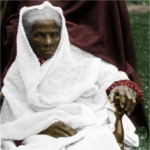|
Something I encountered in college about Islam was the rejection of the human form because of idolatry. I understand this is from a particular school of thought, but it did a lot to liberate me from a toxic perspective on religion. I really appreciated the rejection of Mohamed as God and that he was just a man (a very important man, but still just a man). It helped me better understand stories from the Torah and pull back on my anger towards Christianity. Thanks Tendai for reminding me of that and how I have a much more mature perspective on religion now then I did as a teen. Tendai posted:
This reminds me a lot of some Papal encyclical I read (probably Vatican II) where the Pope writes even a man who spends his life in a cave may come to know Christ. The implication obv being that there is something about your individual decisions regardless of what society you're a member of. I don't ascribe to an organized religion but I very much agree with your sentiment here. To be good is to seek to know the good and then practice and share it with others. I don't have a question, but I really like this thread and thanks for sharing!
|
|
|
|

|
| # ? Apr 25, 2024 00:27 |
|
Cats are even considered cleaner than other animals, a cat drinking from water you're using for ablutions before prayer doesn't make it unclean. Also, an interesting article of a Pew study, which really backs up my own real life experiences and my own views: U.S. Muslims are religiously observant, but open to multiple interpretations of Islam. quote:For American Muslims, being highly religious does not necessarily translate into acceptance of traditional notions of Islam. While many U.S. Muslims say they attend mosque and pray regularly, sizable shares also say that there is more than one way to interpret their religion and that traditional understandings of Islam need to be reinterpreted to address the issues of today. From that article:  N. Senada posted:Something I encountered in college about Islam was the rejection of the human form because of idolatry. I understand this is from a particular school of thought, but it did a lot to liberate me from a toxic perspective on religion. I really appreciated the rejection of Mohamed as God and that he was just a man (a very important man, but still just a man). It helped me better understand stories from the Torah and pull back on my anger towards Christianity.
|
|
|
|
What is the deal with Muslim marriage contracts? So many jokes along the line of "Did you hear what Fatima put in her marriage contract? The bit with chicken for dinner twice a week?". I feel like I'm missing out on a lot of jokes.
|
|
|
|
BattyKiara posted:I feel like I'm missing out on a lot of jokes. This is my primary drive behind learning more about the world, too.
|
|
|
|
Hello, sorry to bother you guys but I wanted to ask a couple of very quick question from interactions with my colleague at work who is Muslim. 1) He said that, unlike in the Christian tradition, Gods love is "transactive" and that he didn't believe God possessed unlimited love. Is this a strain of thought common throughout the faith, or is it particular to certain groups/ just the bloke I was chatting to? and 2) He did not believe in, what he called "neo-darwinian" evolution, again is this common? He said that it was racist and atheistic and I said that it was often only used by crappy scientists for the former (and some for the later). Oh and this is a general "abrahamic religious" question, but I always found the idea of "I made you, ergo you must worship me" to be a bit off, is there any discussion on this?
|
|
|
|
Josef bugman posted:Oh and this is a general "abrahamic religious" question, but I always found the idea of "I made you, ergo you must worship me" to be a bit off, is there any discussion on this? To be honest (and Lord forgive me), I don't find the mythological cosmology of the Abrahamic religions translates well anymore. I was born into it and I've come to love it, but before I could love it, I needed to see it from the outside and learn for myself what the message was/is/will be. Consider the worship of God in this way, which removes the personification of God found in Abraham and the subsequent messengers. You are a product of the universe, not a foreigner to it. Your body and psyche exist because of the non-random results of the interactions of all matter and energy since the big bang and the start of time and space. I'm likely wrong, but this is how I understand who/what Lord YHWH is, who is also popularly titled God and Allah. It is the name for the unity of everything that we, as just regular folks, can observe and talk about. I'm convinced that to worship this unity-of-everything involves using your psyche's unique (and, I'd argue, undeniable) phenomenon to assign value and make choices. The call to worship is a call to individuals to look beyond the limits of their psyches and consider their real place with respect to everything else, neither overstepping nor underachieving that position. Further, I also suggest that the highest act of worshipping the unity behind everything is to love ever-expandingly. Eventually I will get into trouble with another Abrahamic who'll identify the heresy in my willingness to speak about worshipping God without using the traditional titles and names. But just remember, as they cart me off to Catholic jail or obscurity, that I've always cared more about the choices you make rather than the stories that made sense to you.
|
|
|
|
That's fairly reasonable, to me. Even some of the most well-respected Sufi like Rumi refer to Allah in surprisingly intimate terms, that some Orthodox look at a bit askance. Sorry for answer delays, work has been a real poo poo lately, and today is a holiday, Eid al Adha. I will explain a bit more about that and answer other questions posted before this later this evening or first thing tomorrow morning, sorry!
|
|
|
|
Josef bugman posted:1) He said that, unlike in the Christian tradition, Gods love is "transactive" and that he didn't believe God possessed unlimited love. Is this a strain of thought common throughout the faith, or is it particular to certain groups/ just the bloke I was chatting to? quote:Ar-Raheem, the Most Merciful All of those mean love, to me. I suppose it might depend in large part on how you define the word, but all those combined essentially form my idea of love at a pretty basic level. I do not see my relationship with Allah as transactive, really. Josef bugman posted:2) He did not believe in, what he called "neo-darwinian" evolution, again is this common? He said that it was racist and atheistic and I said that it was often only used by crappy scientists for the former (and some for the later). Josef bugman posted:Oh and this is a general "abrahamic religious" question, but I always found the idea of "I made you, ergo you must worship me" to be a bit off, is there any discussion on this? BattyKiara posted:What is the deal with Muslim marriage contracts? So many jokes along the line of "Did you hear what Fatima put in her marriage contract? The bit with chicken for dinner twice a week?". I feel like I'm missing out on a lot of jokes. I don't know a lot of jokes Anyhow, the marriage contract is interesting in how it works and is used. Depending on whether you're Sunni or Shi'a, witnesses are either required, preferred, or not totally necessary. A whole lot of detail goes into it. Where you'll live. Finances, from during to after the marriage. What happens if there are kids. All the normal stuff that goes into prenuptial agreements, but more specific. Sometimes a lot more specific. One of the ways that less conservative families in places like Saudi Arabia and Iran get around some of the restrictions in their country's laws as they pertain to women is by writing it into the marriage contract. For example, it can be stipulated that a woman must be allowed to finish university, or has the same right to divorce, or that the husband cannot take another wife. And because these are stipulated, depending on the jurist who might rule on it, they will more often than not be upheld if it comes to it. So it's an ancient thing that's actually being used in a pretty great way to subvert some of the poo poo treatment women get in some countries.
|
|
|
|
Have a nice Eid celebration. I know you said you would probably never do a Hajj, but could you do a run down of what happens during a Hajj? The different rituals, symbolic acts etc? BattyKiara fucked around with this message at 13:06 on Sep 2, 2017 |
|
|
|
Do you participate in ritual prayer? If yes, what do believe the purpose of it to be?
|
|
|
|
Remember when I said I hadn't forgotten this thread? This time I did, with no excuse other than it's been a long couple weeks at work and when I get home thinking sounds difficult. Anyhow, I am answering everything here I haven't answered yet. I think.N. Senada posted:Do you participate in ritual prayer? What exactly you do in prayer will depend on what school you follow. The chart on Wikipedia actually gives a pretty decent rundown of the most basic differences. https://en.wikipedia.org/wiki/Salah#Differences_in_practice Whether you speak a certain prayer or do it silently, whether you say something or don't, all those are pretty governed by what path you believe in. Opinion on how much this matters will vary from "it doesn't really" to "gently caress you, apostate."  Salah is much more worship than personal. Praising God and glorifying rather than making personal requests, which to me serves multiple purposes. Obviously, praising Allah. Secondarily, doing so in concert with other Muslims around the world. There is something deeply powerful to me about kneeling and knowing that I'm part of a wave of Muslims that circles the world throughout the passing of 24 hours, doing these acts. A sense of community even when isolated. BattyKiara posted:Have a nice Eid celebration. I know you said you would probably never do a Hajj, but could you do a run down of what happens during a Hajj? The different rituals, symbolic acts etc? Anyhow, Hajj. One of my favorite things about Islam is the emphasis on intention, and the meaning of the word itself has that connotation, translating more or less to intend to take a journey. The inward meaning is assigned a great deal of importance, both in the sense of "If you wanted to do Hajj but couldn't for any of a variety of reasons" and "your spiritual state while on Hajj." Hajj takes place during the last month of the Islamic year, which is right now. The actual new year is September 21st this year, Hajj took place from August 30th to September 4th. Hajj starts at the miqat, which is where you change into ritual garments. What specifically those look like can sometimes vary by culture, but it's basically two white sheets wrapped around the body with additional things as necessary to conform with "standards of Muslim public dress" as the Saudis see it. You state your intention of not doing certain things like killing animals, having weapons, or having sex. Then there's a day where you kind of repeat that, and re-state your intention. After that is the most familiar thing to people, circling the kaaba. You do it seven times, and there's prayer involved. A lot of where you end up doing this depends, on this point, on how huge the crowds are. Then you do running between the hills near the Kaaba. This is in a tunnel, which is one of the downsides because if you haven't heard about people getting killed during Hajj in the past 10-15 years, I'm not sure what to tell you. On the plus side, it's air conditioned, so people like me from cold places wouldn't literally die in the Saudi sun. After that men shave their heads and I think some women clip a piece of their hair. This is an area I'm not too certain on the why. Anyhow, that's all one day. In the next four days you go to Mina, Arafat, and then the area in between them, and finally back to Mina. There is praying throughout. The next day, you do the stoning of the devil, which is another thing I think people have heard of. It's a remembrance of Abraham, during his Hajj he's said to have stoned three pillars, representing his temptation to disobey Allah. In the following few days this is repeated in varying orders. The Saudis replaced the pillars with walls because people were getting hit with rocks  Then comes the animal sacrifice, which is not really done as much in person anymore due to the sheer numbers. Now there are vouchers, and the meat goes to charity. That's Eid al-Adha, which I mentioned before; even if you're not doing Hajj it's a holiday and you sacrifice. If you're someone like me who is living in a condo and your HOA would seriously frown on you killing your own meat, you give to charity to feed others, or something similar. At the very end, you circle the kaaba again. This is called the tawaf al-wadaa, which basically translates clunkily to "the circling ritual of saying goodbye," because tawafs are specific rituals to the circling of the kaaba and wadaa means to say goodbye or farewell. Then you go home, though you might also go to Medina to see Muhammad's tomb or to other places depending on your interests or finances. The "official" Hajj ends at sunset on the sixth day.
|
|
|
|
Straight White Shark posted:There are reasons to question the "religion of peace" claim but this is quite a stretch. The verb is "to submit", not "to force into submission." It's describing an action that's inherently passive and peaceful. Interesting take on how the muslim guy who blew up a pipe bomb literally on my doorstep last year seemed to be going around inculcating passive and peaceful submission. My question is still why is the Koran subject to more violent interpretation in contemporary society than the Torah or Bible? Are the words different? Are Imams more likely to interpret it that way? I legitimately am interested in your thoughts.
|
|
|
|
Seems like you're staring down the wrong end of the telescope there, better to ask what is it about contemporary society that drives any particular person to a violent interpretation of a religious text. Like, remember that time all those christians got together, put on their plate and mail and sailed off to gently caress up the middle east for good christian reasons? Hint: it wasn't because jesus told them to.
|
|
|
|
|
Slavvy posted:Seems like you're staring down the wrong end of the telescope there, better to ask what is it about contemporary society that drives any particular person to a violent interpretation of a religious text. Hint: I'm asking about contemporary society, not the crusades.
|
|
|
|
Tendai posted:Not an answer to any question, but this is the last sermon of Moinuddin Chishti of the Chishti order. Reading this is what made me start studying Chishti thought in particular after doing a more generalized trawling of Sufi classics like Rumi and Shams. Hmmmmm. Sounds like Pelagianism to me. /joke As a Christian, I definitely have differences of opinion on the truth-claims of Islam. That said, of all the Muslim threads of thought, I definitely find the Sufi traditions the most in sync with that which is the truth and the light.
|
|
|
|
Judging Islam by a few extremists' interpretation of the Koran is like judging Christianity by the nutjobs at Westboro Baptist Church. All religions are going to have people who take things to the extreme, but their opinion is not the opinion of the majority.
|
|
|
|
I am a non-Muslim, so I have more liability to dignify the actions of certain terrorists by linking them to whichever religion they claim to stand for. The terrorists we are referring to have killed vastly more Muslims than they've killed non-Muslims. As far as I can tell, though, history does not happen in a vacuum. I'm no expert of history, but what appears to happen to regions with struggling institutions is that they become susceptible to violent actors who want to play an international, zero-sum power game. Their officer and enlisted classes draw from a pool of disaffected characters who don't mind violence and feel a personal stake in winning the war. We talk about the Crusades as being an example of Christian violence, but we're forgetting the countless other wars that Christian monarchs fought using Christian peasants for reasons that would not impress Jesus Christ.
|
|
|
|
Shizmo posted:Interesting take on how the muslim guy who blew up a pipe bomb literally on my doorstep last year seemed to be going around inculcating passive and peaceful submission. It's not a take on anything except the literal definitions of words, my man Like, they could name their religion Puppy And Kitty Cuddles, that has no bearing on whether they do or do not have violent extremists under their umbrella
|
|
|
|
There are reasonable questions as to why tactics are used so predominantly among Muslims. I mean, I may just not look at the right statistics, but even from my viewpoint it seems like there are more, say, Muslim suicide bombers and there are radical Christian suicide bombers, in terms of even just percentage of population. I might be wrong, I am honestly not looking at facts right now. So I think there are legitimate concerns as to what in modern Muslim culture, seemingly transcending nationalities, is causing this. I obviously recognize that Islam is a commonality among those people who do this. But I don't take our holy book to be any particularly more violent than the Torah or the following New Testament. I think the hadith play a large part in it, which is one of the reasons I don't take them as concrete guides, but rather something more akin to a parable that is meant to guide and may not be relevant in the current time. I hesitate to go too much further on this, because it's very easy to sound like I'm just poo poo talking the Saudis. But the way they have been the heaviest promoters of an extremely reactionary form of Islam around the world in the last 30 or 40 years has contributed a great deal to the current Orthodox Muslim culture in good and bad ways. More people are exposed to Islam thanks to their initiatives like sending free copies of the Quran and improving the safety of places like Mecca. On the other hand, the form of Islam that they are introduced to is one that I cannot believe in. It's one that makes me honestly startled, because I have the naive view that humans are evolutionarily out for themselves but are able to overpower that with the realization that there are basic principles that we have also evolved to understand. See, this is one of those times where I think I just ramble and sound a little crazy. But I have deep moral objections to Saudi brand Islam as both a Muslim and a human being.
|
|
|
|
Well I certainly don't want to defend the Saudis (or anyone really) here, but I think you could say many of the same things about Iran. Or, going one step further, one could ascribe much of what you said to the little cold war these two countries have going.
twerking on the railroad fucked around with this message at 13:09 on Sep 9, 2017 |
|
|
|
twerking on the railroad posted:Well I certainly don't want to defend the Saudis (or anyone really) here, but I think you could say many of the same things about Iran. Or, going one step further, one could ascribe much of what you said to the little cold war these two countries have going. That is true, but to my knowledge, the Iranians have not made quite the concentrated push in the last 30 to 40 years with regards to spreading their version of Islam. It's still a horrible regime with God awful human rights issues, but in terms of the impact on worldwide Islam and how people view it, I think the Saudis have done far more damage in terms of what they promote as being Orthodox Islam. Does that make sense?
|
|
|
|
Tendai posted:That is true, but to my knowledge, the Iranians have not made quite the concentrated push in the last 30 to 40 years with regards to spreading their version of Islam. It's still a horrible regime with God awful human rights issues, but in terms of the impact on worldwide Islam and how people view it, I think the Saudis have done far more damage in terms of what they promote as being Orthodox Islam. Does that make sense? Oh for sure. I hope I've made clear that I was only giving the thoughts of one person, who incidentally is not a muslim and has no personal view of what's going on for the average muslim. That's why this thread is interesting!
|
|
|
|
Any chance the Sunnis and Shiites stop feuding with each other and bury the hatchet anytime soon?
|
|
|
|
Well I mean, it's been over a thousand years, so...  Realistically, the best we can hope for is probably "stop hating each other and saying that the other side aren't doing it right," and even that's going to be a stretch. Remember that this split originated immediately after the death of Muhammad in 632 AD, so it's been closer to 1500 years at this point. There are huge divisions in terms of dogma and practices, and general mindset - like I've said before, Shi'a thought as a whole generally tends to be (but is not always) slightly more chill and edging more towards liberal. For example, they're alright with tattoos and Sunni aren't, etc. So the answer is, unlikely. Sadly.
|
|
|
|
Do you have a favourite part of the Quran? If yes, what is it about that part that speaks to you?
|
|
|
|
Tendai posted:I hesitate to go too much further on this, because it's very easy to sound like I'm just poo poo talking the Saudis. But the way they have been the heaviest promoters of an extremely reactionary form of Islam around the world in the last 30 or 40 years has contributed a great deal to the current Orthodox Muslim culture in good and bad ways. Oh don't worry, I won't hesitate to say 'gently caress the Saudis' as much as I can. Their Wahhabist brand of reactionary thought is a cancer on modern religious practices, and it galls me to see so many people, Muslim or otherwise, look the House of Saud and think 'yep, that's a Muslim all right'. And let's face it, they're hardly the ones to talk about being good Muslims when they sin like the worst of 'em. BattyKiara posted:Do you have a favourite part of the Quran? If yes, what is it about that part that speaks to you? If I may butt in here myself, my favourite part of the Qur'An is the simple beginning to just about everything, 'Bismi-llāhi-raḥmāni-raḥīm':  Muslims don't just recite it before we read the Surahs, we say it when we get up in the morning, before every bite of food, before we embark on an endeavour etc. (or at least, that was the way we do it in Malaysia, dunno how it is overseas). It basically means "In the name of Allah, the All Forgiving and All Merciful/Loving", and it's always appealed to me that of all the 99 traits that the Creator chose to know Him by, it's those two. Not 'Al-Quduus' (the all-Holy), not 'As-Salaam' (the Saviour), not 'Al-Muhaimin' (the Protector), not even 'Al-Hakam' (the Judge) or 'Al-'Adil' (the Fair/Just), which are traits you'd expect to see associated with a divine being. Unfortunately, fundamentalists are often the last people to actually read their holy books, and welp.
|
|
|
|
I actually agree with regard to my favorite part of the Quran. The fact that the first two qualities of Allah that are mentioned throughout Muslim ritual, across culture, are beneficence and mercy, speaks pretty deeply to me. Allah is also described in more aggressive ways, but the ones that are driven most throughout the day to day of Muslim life are two appealing, gentle qualities. When I'm in a bad spot, if I'm going through something rough, and praying for example, I will often end up just repeating that term to myself and fingering prayer beads. Raheem is not an uncommon Muslim male name, and if I didn't think I'd look like a wannabe Arab poseur giving a potential child a name name in Arabic, I'd probably give it to my son if I had one someday. It's a good quality to strive for in anybody.
|
|
|
|
CommissarMega posted:Oh don't worry, I won't hesitate to say 'gently caress the Saudis' as much as I can. Their Wahhabist brand of reactionary thought is a cancer on modern religious practices, and it galls me to see so many people, Muslim or otherwise, look the House of Saud and think 'yep, that's a Muslim all right'. And let's face it, they're hardly the ones to talk about being good Muslims when they sin like the worst of 'em. I know absolutely no Arabic, so forgive me if this sounds silly. What do long swooshes, like the one in that picture, represent in Arabic sentences? Is it a sound, or some kind of pause?
|
|
|
|
Nissin Cup Nudist posted:Any chance the Sunnis and Shiites stop feuding with each other and bury the hatchet anytime soon? I'm not a history expert, but I've been told that there were (and still are) times and places where Sunnis and Shiites lived in friendship and co-operation, and that is like burying hatchets. But if what you mean is a full melding of two great branches back into one, then the Abrahamic religions do not have a great number of examples of this happening through regular, organized processes. But what they do have is a tradition of outstanding truth-tellers responding to the (often negative) reality and context of their situation that end up contributing to widespread spiritual awakenings. This is often referred to as the prophetic tradition, but the term 'prophet' is politicized.
|
|
|
|
If you're referring to the blue squares here: then odds are it's simple calligraphic art, as while the Arab alphabet does comprise separate letters, it is meant to be joined together (think cursive writing). What really determines how something is read are the little shapes and dashes above and below the letters (again, in blue below):  For example, 'Allah' is how you'd read the section outlined in purple, but if you take the orange section into account, it's read 'millah' 
|
|
|
|
Thank you for that explanation! I don't know much about written Arabic except to recognize a few very common phrases like that.
|
|
|
|
Why is there no Islamic music? The call to prayer sounds like it should be the base of a rich musical tradition, but it isn't. Why not?
|
|
|
|
How do you and your leaders handle that fact that Mecca is governed by an enormously cruel and corrupt government? Did your leaders ever comment on the impact the Grand Mosque seizure has had on the politics of Islam?
|
|
|
|
Why is green such an important colour in Islam? And since green is so important, what do you never see Arabs wearing green?
|
|
|
|
Hi, I am on my tablet right now, but as soon as I'm at my actual computer where I can type and not just dictate or type using that stupid screen typing, I will answer questions sorry guys
|
|
|
|
BattyKiara posted:Why is there no Islamic music? The call to prayer sounds like it should be the base of a rich musical tradition, but it isn't. Why not? My favourite islamic music is Saleel Sawarim.
|
|
|
|
I have a soft spot for ISIS nasheeds. It's like the Imperial March of real life.BattyKiara posted:Why is there no Islamic music? The call to prayer sounds like it should be the base of a rich musical tradition, but it isn't. Why not? It most certainly should not. Those geniuses who try to sing personalized versions of the Star Spangled Banner come to mind. Baron Porkface fucked around with this message at 02:27 on Sep 24, 2017 |
|
|
|
*Kramers into thread as if I am any sort of authority.* Hay everybody reading. I'm your average jackass who happens to be a muslim (converted at 17, still at it 10 years later). And I wanted to answer questions too because I hovered around in one of these threads years ago. BattyKiara posted:Why is there no Islamic music? The call to prayer sounds like it should be the base of a rich musical tradition, but it isn't. Why not? Depends on the culture you're in. You may tend to see arab muslims treat reciters of the like rockstars (like Al-Sudais). In the west you see (especially with younger kids) more traction with islamically-based/influenced music & artists. And just like you'll find ordinary muslims who draw arbitrary lines they won't cross, you find the same with artists. Artists that have versions of their songs with and without drums, ones that take contemporary songs and make it more "wholesome", etc. The old "music is forbidden vs only drums are forbidden vs music is ok if it's religious in nature" debate. The music is there, but there are (in my experience) swaths of people/communities that look at music with contempt and scorn. When I learn about big music artists who are muslim and read they don't practice as much/at all since they got older, I wouldn't be surprised if some of the reason is that hard-line conservative families/communities can be really disdainful when it comes to things like music, that are (falsely) seen as gross western practices. One example of an islamic artist that pops into my head (because my younger students mention him whenever they want to talk about music) is Zain Bhikha. Dude was being called the "Muslim Michael Jackson" for a while. I have no doubt in my mind that somebody heard Bhikha and assumed it was MJ with zero fact-checking. https://www.youtube.com/watch?v=g-59ngOqbCk BattyKiara posted:Do you have a favourite part of the Quran? If yes, what is it about that part that speaks to you? There really two really short passages that have stuck out for me. One of them is one of the shorter chapters, Surah Al-Asr (duhh.. The Time chapter 103) and a single line from Nuh (71:13). Asr speaks to me because it really encapsulates to me the important things that should help you in being a muslim and, for the most part, a person in general. I won't quote the whole thing, but it's essentially God going "I'm telling you, so long as you believe, are doing the right thing, being honest, and are patient, you're not a loser". With the line from Nuh/Noah, here's a translation: quote:What is the matter with you that you don't have hope for greatness from Allah? 1. Like person, I have my faults and have my occasional crisis where I feel like trash for doing the dumb things I have in the past. That line helps me snap back into remembering that just because I have made some mistakes doesn't me I'm going to be drinking boiling water and thorns for all of eternity. I mean, I still need to work on myself as a person, but it's not all-or-nothing. 2. Later on in life, it has reminded me of this, which is a stupid and funny(to me) reason: https://www.youtube.com/watch?v=O0TQbRNmYus Yestermoment fucked around with this message at 02:41 on Sep 25, 2017 |
|
|
|
BattyKiara posted:Why is there no Islamic music? The call to prayer sounds like it should be the base of a rich musical tradition, but it isn't. Why not? Baron Porkface posted:How do you and your leaders handle that fact that Mecca is governed by an enormously cruel and corrupt government? Did your leaders ever comment on the impact the Grand Mosque seizure has had on the politics of Islam?
|
|
|
|

|
| # ? Apr 25, 2024 00:27 |
|
Thank you for the music replies. I guess my question is more about Islamic art and music in general. You do not have to be a Christian to appreciate a lot of church art, or church music. I mean, most of my favourite classical music is religiously based, and visit any art gallery and you find a lot of cool, religiously themed art. Just curious why there isn't as cannon of Islamic in origin music? I get that the whole "no depicting Muhammed or any other prophets etc" rule means there won't be a lot of Quranic inspired paintings around, I just didn't know there was also a rule against music.
|
|
|


















